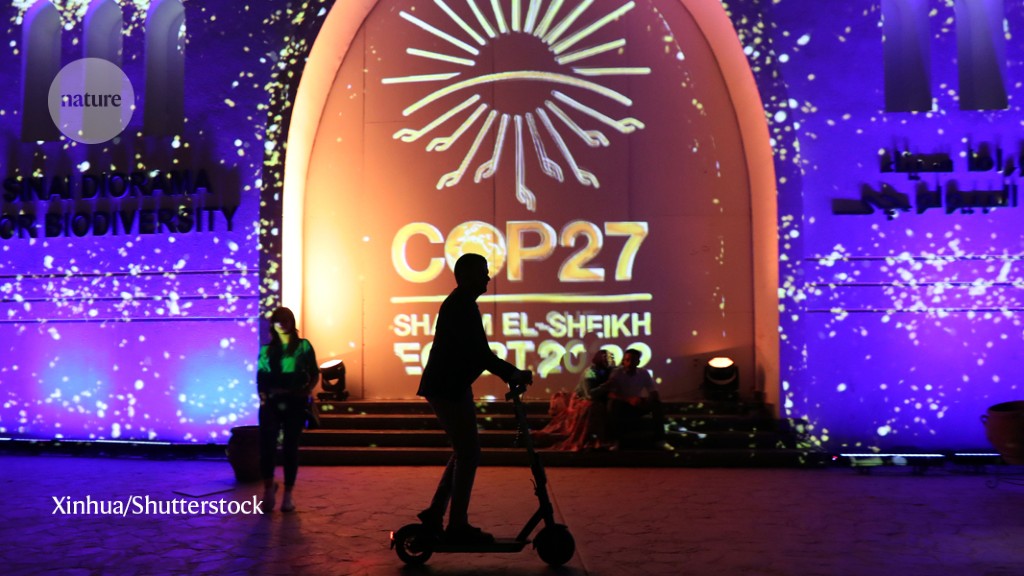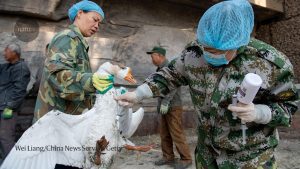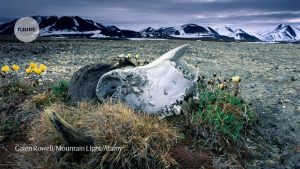
There’s a political hot potato about climate finance
Climate Change, Adaptation, and Vulnerability: Where are we heading? The Egyptians, the UK, and the Middle East
The Egyptian hosts of the COP27 climate conference are warning the leaders of wealthy nations that there can be no “backsliding” on commitments made at COP26 in Glasgow, UK, last year.
Researchers conclude that nations are off track in delivering this commitment. In addition, wealthy countries have failed to reach a promised goal to provide climate finance of $100 billion annually to vulnerable nations. The World Bank was expected to increase funding to reduce greenhouse-gas emissions and to make communities more vulnerable to climate change, but this has yet to happen, Shoukry wrote.
There is a huge gap in climate research in the Middle East and North Africa. Europe or the Mediterranean region is the focus of most studies. You wouldn’t find research specifically on Egypt, for example; the work that exists is like a by-product of research on the Mediterranean region or the African continent.
In 2015, Egypt estimated that it needs to set aside $73 billion for projects to help the country mitigate climate change and adapt its infrastructure. But this number has now more than tripled to $246 billion, says environment minister Yasmine Fouad. The climate actions we have been doing have been financed by the national budget, which adds more burden and competes with basic needs that have to be fulfilled.
The “polluter pays” principle, the basis of environmental laws around the world, is the basis of the concept of reimbursement for loss and damage, according to the editor of Down to Earth. In the 1–15 November issue, Narain says that the financing has to be on the table because of the promise of a fund that never happens.
The phrase “losses and damages” was added to the report on climate impacts, adaptation and vulnerability from the Intergovernmental Panel on Climate Change. Christopher Trisos is an environment scientist at the University of Cape Town and is one of the authors of the chapter on climate impacts in Africa.
Ian Mitchell, a researcher with think tank the Center for Global Development in London, warns of the risks of accord on loss and damage being a deal-breaker at the meeting Loss-and- damage finance could be absorbed as part of humanitarian-aid spending if high-income countries agree to the principle.
Adil Najam, who studies international climate diplomacy at Boston University in Massachusetts, thinks it is unlikely that these issues will be resolved in Egypt, and says that the politics will probably get messy. He says that the high-income countries cannot avoid loss-and-damage finance since the climate impacts in vulnerable countries are becoming more severe.
Fouad says that organizing this year’s COP in Africa has been transformative. “We are expecting more attention towards issues that are crucial and meaningful to us Africans and relevant to most developing countries, such as food security, desertification, natural disasters and water scarcity. More African youth, non-governmental and civil-society organizations will be heard during this COP.
Nature spoke to four climate scientists from the host country about their research and challenges, as the conference entered its second week.
To mitigate the sea-Level Rise in the Nile Delta and study its impact on the farmers and people living in the surrounding area, I work at my research institute.
The biggest challenge is that nothing can be done quickly enough to prevent economic and agricultural losses. Funding and potential profits are some of the key factors that go into applying the outcomes of climate studies.
My colleagues are attending COP27 and delivering a presentation on the Water Day, 14 November. But we’re only doing research — we cannot change policies. We hope to hear more about an agreement to reduce emissions by the end of COP 27. We have heard many promises in the past.
Climate Finance: Implications for the IWPC and the Sustainable Development Goals of the Nile Valley, a First-Principles Study
I am researching to find ways to minimize the effects of climate change and sea level rise in the Nile Valley. I work with plant scientists at the University of Florida to find plant strains that can tolerate high levels of salt in the water.
I don’t feel that it is scientists’ job to translate their studies into effective adaptation projects despite the research that proposes solutions. I hope that withCOP 27 we can begin the implementation of such projects at the earliest possible time.
I spoke about my start-up at another session during a session on climate- change adaptation, loss and damage at COP 27, which was held on 10 November.
A business that I co-founded, Recyclizer, recycles plastic waste into a mulch film that can be used to protect the soil and reduce the amount of water needed for irrigation.
In my academic research, I focused on how the decision-making process in the public and private sectors affects the implementation of sustainability and development goals and tackling climate change in Egypt.
Lack of data or poor access to data has been my greatest challenge. It’s an issue for researchers in a developing country to be able to access research papers in science journals.
It’s taken three decades to get to this point, at least in part because of arguments between richer and poorer countries on a whole raft of issues. A lack of agreed definitions on climate finance is just one of the range of reasons why richer countries do not agree on what constitutes climate finance.
There are arguments over money at every COP. Doubtless they will return at COP28, which is due to be held in Dubai in the United Arab Emirates in a year’s time. The size of the loss-and-damage fund is something that hasn’t been discussed.
This is an excellent idea, not least because it will help to establish areas in which experts largely agree — or disagree — and so identify instances in which further research could help to unpick outstanding questions. It doesn’t go far enough. The synthesis on climate finance should be prepared by the IWPC. The lack of such a synthesis means that even the most basic concepts and methodologies are disputed, says Romain Weikmans, a researcher at the Université Libre de Bruxelles, who is one of those pushing the IPCC to take on this task. It’s not just loss and damage: the ins and outs of mitigation and adaptation finance are also still hotly disputed.
For example, donor countries count money that was pledged or promised as investment in wind energy or flood defences. Low- and middle-income countries do not want to count money that is actually received by projects on the ground. Donors also count loans — which account for the lion’s share of climate finance — whereas LMICs would prefer to count only grants or other money that does not have to be repaid. The question is of scope. Some would like to see the whole development count for climate finance if it had special cool roofs, others would only consider the roof part.
The way the IPCC is set up means that if governments want its advice, they must make a formal request. It’s now over a year since that request was due. In an interview with nature, the co-founder of the Centre for Climate Change Action and Advocacy stated that it was shocking to see how long negotiators had spent in debates over the text and how little evidence there was to make their decisions. Before the next round, match fit needs to start.
Fossil fuel industry created a network of scientists to challenge the science of climate change and this is one of the reasons why political failure to act on climate change is now known. The industry’s efforts, which are ongoing, have included at least 4,556 individuals with ties to 164 different organizations. Climate change denial cost the companies a half-century to continue the recovery from fossil fuels and delay the transition to clean energy.
The study of ignorance or doubt is on the rise. The Climate Social Science Network, launched in the fall of 2020 out of Brown University, has over 300 scholars, and is devoted to studyingclimate policy obstructionism around the world such as the important role of public relations firms. In the year of 2023, universities will begin to establish research units that are dedicated to protecting scientific knowledge from government, religion and free enterprise.
The pros and cons of government secrecy will be explored by students of agnotology. They will look at the history of the church opposing evolution being taught. They will look at the current examples of deception, including a claim made in China and France that smoking could prevent Covid-19, and how the meat and dairy industry downplays the contributions of cows to climate change.
As knowledge remains our best hope to save the planet and ourselves, in 2023 a deeper understanding of ignorance will help us learn what the powerful do not want us to know.
The AGU, which has 60,000 members who include space and Earth scientists, refused to answer questions from Nature due to ongoing investigations. The society’s ethics policy and codes of conduct require attendees to treat everyone with respect, and this includes the time presenters and audience take to speak and listen, as well as the time audiences take to listen.
In response to the protest, the AGU removed the scientists’ abstracts from the meeting programme, expelled them from the meeting and opened cases of professional misconduct against them. The cases are still being worked on. Oak Ridge fired lobbyist Jack Abramoff in January of this year for his involvement in the incident. Kalmus still works at JPL, but declined to tell Nature whether officials there had reprimanded him.
On the failure of the IPCC-style network to raise the awareness of global climate change and the implications for food security, water and water: Two protests against a protest in Charlotte Douglas
The society gives people the opportunity to reserve space at all it’s meetings every year, and has a proactive stance towards addressing the urgent problem of climate change.
The two men had protested before to demand action on climate change. They had been arrested for civil disobedience. As part of global demonstrations, they chained themselves to the fence of Charlotte Douglas International Airport in North Carolina last November to protest against emissions from private jets.
According to a 10 January opinion piece that Abramoff wrote for The New York Times, Oak Ridge fired her because, it said, she had misused government resources by engaging in a personal activity on a work trip, and she hadn’t adhered to its code of business ethics and conduct.
This is no small achievement for what is, at its core, a network of hundreds of researchers working in the early or late hours for no payment. They read and summarize thousands of research papers to answer questions such as how much the planet has warmed; what the future projections are for Earth’s climate; what the impacts of warming are; how to mitigate climate change; and how the world can better prepare for a warmer future.
A similar but less well-known IPCC-style network of researchers is the Intergovernmental Science-Policy Platform on Biodiversity and Ecosystem Services (IPBES). The studies were started in 2012 and helped to underpin the framework, which was signed in December of last year. There is no advisory research body with a similar impact or scale on other great global challenges such as inequality, water or food security, which are embodied in the UN sustainable development goals. And this is not for want of trying. Why is the model so hard to replicate?
Although the IPCC was established in 1988, the seeds had been sown several decades earlier by researchers who were becoming concerned about the implications of putting vast amounts of carbon into the atmosphere. The UN, the World Meteorological Organisation and the International Council of Scientific Unions co-organized a series of climate research programmes. By the late 1970s, studies started to show projected warming due to carbon dioxide and other greenhouse gases.
Many of the government scientists have strong links to departments for defence and they had access to some of the most senior people in government. In the United Kingdom, for example, the IPCC’s first assessment report (in 1990) was presented in a special seminar to then-prime minister Margaret Thatcher.
Other scientific networks do not have the same degree of access. Even if they did, such involvement would be more complicated to navigate now than in the 1980s. The authors of the book detail how, over the course of time, IPCC meetings became more politicized because government representatives were interfering in the scientists’ discussions.

